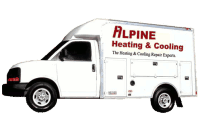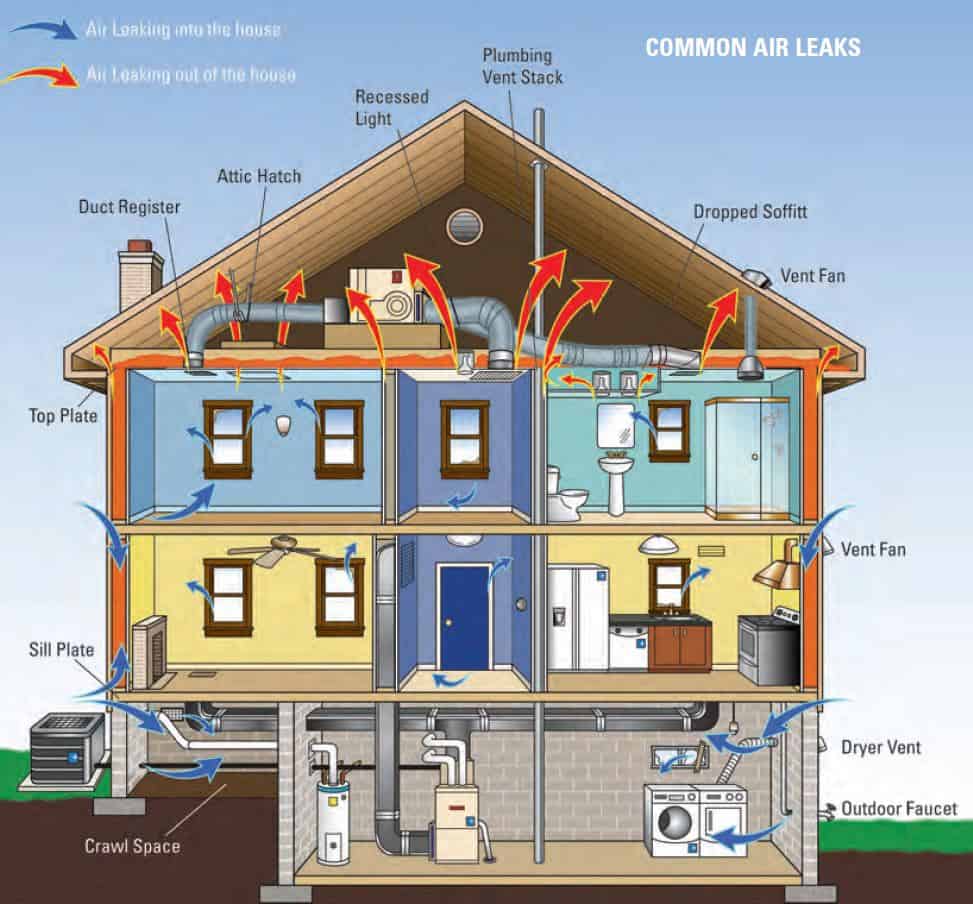Seal and Insulate Your Home and Save Money
The exterior of your home—the outer walls, ceiling, windows, and floor—is called the “envelope” or “shell.” As a knowledgeable homeowner or with the help of a skilled contractor, you can seal and insulate your home and save up to 20 percent on heating and cooling costs (or up to 10 percent on your total annual energy bill). Sealing and insulating your home envelope will also make your home more comfortable and help your heating and cooling system run more efficiently.
Seal and Insulate to Reduce Hidden Air Leaks
Be sure to look for and seal air leaks before you install insulation because it performs best when air is not moving through or around it. Many air leaks and drafts are easy to find because they are easy to feel—like those around windows and doors. But holes hidden in attics, basements, and crawlspaces are usually more significant problems. Sealing these leaks with caulk, spray foam, or weather stripping will have a significant impact on improving your comfort and reducing utility bills.
Homeowners are often concerned about sealing their house too tightly; however, this is very unlikely in many older homes. A certain amount of fresh air is needed for good indoor air quality, and there are specifications that set the minimum amount of fresh air needed for a house. If you are concerned about how tight your home is, hire Alpine Heating and Cooling, we can use diagnostic tools to measure your home’s actual air leakage. If your home is too tight, a fresh air ventilation system may be recommended.
Adding Insulation
Insulation keeps your home warm in the winter and cool in the summer. There are several common types of insulation—fiberglass (in both batt and blown forms), cellulose, rigid foam board, and spray foam. Reflective insulation (or radiant barrier) is another insulating product that can help save energy in hot, sunny climates. When correctly installed with air sealing, each type of insulation can deliver comfort and lower energy bills during the hottest and coldest times of the year.
Insulation performance is measured by R-value—its ability to resist heat flow. Higher R-values mean more insulating power. Different R-values are recommended for walls, attics, basements, and crawlspaces, depending on your area of the country. Insulation works best when air is not moving through or around it, making it very important to seal air leaks before installing insulation to ensure that you get the best performance from the insulation.
To get the most significant savings, the most accessible place to add insulation is usually in the attic. A quick way to see if you need more insulation is to look across your open attic floor. If your insulation is level with or below the attic floor joists, you probably need to add more. The recommended insulation level for most attics is R-38 (or about 12 – 15 inches, depending on the insulation type). In the coldest climates, insulating up to R-49 is recommended.
Energy Star Qualified Windows
Windows are an essential part of your home’s envelope. ENERGY STAR qualified windows feature advanced technologies such as invisible glass coatings, vacuum-sealed spaces filled with inert gas between the panes, improved framing materials, better weather stripping, and warm edge spacers, all of which reduce undesirable heat gain and loss.
Increase Savings
With more efficient frame materials windows, you can save money and use less energy. Installing ENERGY STAR qualified windows can reduce energy bills by about 7 – 24 percent compared to non-qualified windows. Your estimated savings will vary depending on current heating and cooling costs in your region.
Improve Comfort
ENERGY STAR qualified windows do more than just lower energy bills; they keep your home’s temperature consistently comfortable. During the winter, the interior glass of ENERGY STAR qualified windows stays warmer compared to typical windows, even when the temperature outside dips well below freezing. In the summer, most ENERGY STAR qualified windows reduce the heat gain into your home, without reducing the visible light.
Protect Your Valuables
Drapes, wood floors, a favorite photograph: all these things can fade or discolor after repeated exposure to direct sunlight. ENERGY STAR qualified windows have coatings that keep out the summer heat and act like sunscreen for your house, protecting your valuables from harmful, fading ultraviolet light without noticeably reducing visible light.
Look for the Energy Star
The ENERGY STAR guidelines for windows are tailored to four climate zones. For example, windows in the North are optimized to reduce heat loss in the winter, while windows in the South are optimized to reduce heat gain during the summer. For optimal results, select ENERGY STAR qualified windows that are appropriate for your climate zone.



